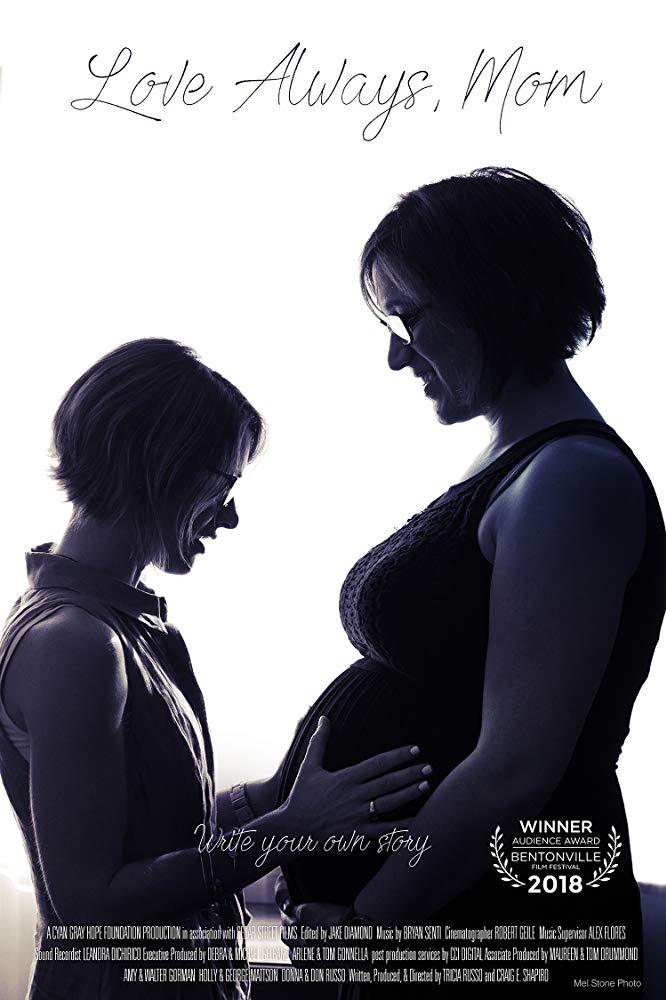I’m a documentary film junkie, so when Netflix announced a new movie, “Love Always, Mom” I was happy to get to know about the lives of two young film makers Tricia (Trish) Russo and her husband Greg. Like other brave documentarians, they turn the camera inward to record a most generous love letter to child not yet conceived. We have the privilege of bearing witness to it all.
The film, in short, tells the intertwining stories of Trish’s metastatic breast cancer, diagnosed shortly after her marriage to Greg, as well was the couple’s unyielding desire to create a family, in whatever way it might be possible.
I have known several young women who have had catastrophic diagnoses just as their adult lives were preparing to blossom. It is a jarring disruption of the circle of life, it would seem. After treating Trish’s secondary cancer in her brain, she endured the seasonal ritual of a PET scan to detect any recurrence. As I anxiously watched the film, I marveled at how one young newlywed couple could negotiate “daily life,” knowing that life-changing news might be lurking around the corner. Even more breathtaking is her ability to live in a state of unknowing while advancing her dream of becoming a Mom.
Like so many women, cancer treatment had a profound impact on Trish’s own fertility prognosis. And even trying to conceive would require her to stop taking drugs, like Tamoxifen, that appeared to be keeping her Stage 4 cancer in check. And, with actuarial tables front and center among adoption stakeholders, it seemed unlikely that traditional adoption would present the couple with the baby they so dearly hoped for. And so, Greg and Trish embarked on their hero’s journey, the long and winding path of finding an egg donor and gestational surrogate.
No matter what, this is a compelling story. I was first drawn in by the couple (but Trish, in particular) being able to hold simultaneously two radical ideas—her potential premature death due to cancer with the absolute faith that being a Mom was her life’s purpose and that the child would be loved and cared for, always. Ultimately, things would be okay. How many times do we wait for life circumstances to be more favorable before plowing ahead with what we claim to desire? My mother was symptomatic with MS (although not yet diagnosed) when I was conceived under the weight of a faltering marriage. I often wondered how this impacted her feelings about delivering a child in such terrible circumstances.
While the movie is certainly about the village that supports Trish, including loving parents and her husband, I was swept away by the trio of strong, generous women—Trish, of course, along with her egg donor Kali and gestational surrogate Meaghan. I’ve not had much exposure to either endeavors. The one young woman I knew who seemed to be seriously considering egg donation seemed compelled by the financial relief it might provide. Gestational surrogacy is either shrouded in mystery or fodder for the tabloids in the cases of high-profile celebrities who have other women carry their children. “Love Always, Mom” brought much needed illumination and humanity to the process. While both women were compensated, their payments were nominal. I calculated that Meaghan, the gestational surrogate, made less than the lowest state minimum wage for carrying the baby to term.
Each of the surrogate participants clearly articulated not only the support of their partners/husbands and families, but their sense of purpose and intentional gifting. By their dispositions and chosen professions, it was clear they had well-honed sense of community and empathy. In the case of the delivering surrogate, she well knew that families are knitted together in many ways. She and her husband had two young biological children and chose to adopt a third toddler to complete their family. And that point, she embraced the idea of helping our couple become parents. This was to be part of Meaghan’s legacy as a human being—a notion that profoundly resonated with Trish and Greg.
Surrogacy is surrounded in secrecy, I think, and it is still an unusual path to parenthood. The Centers for Disease Control and Prevention estimate that only 18,400 babies were born between 1999 and 2013, by surrogacy. While still a rare occurrence, it is most surely on the rise—and all those impacted by these choices, surrogates, parents, partners, donors, need greater understanding and compassion. There were so many tender moments in this film (and spoiler alert: a very happy ending!). I would highly recommend it as a life-affirming experience that helps restore our faith in the loving kindness of strangers and the ability of a brave young woman to seek out her dreams, even in the midst of a life-threatening illness.

